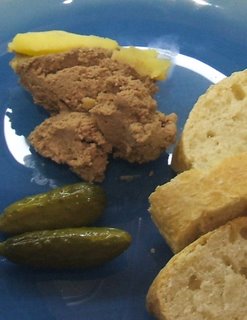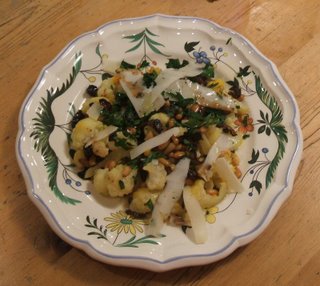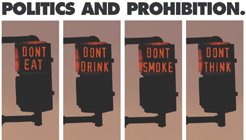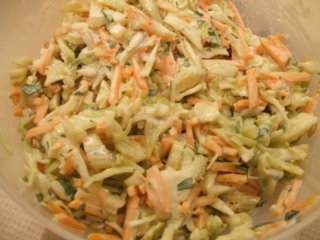On a completely different note, I would like to register my disquiet that a blogger I read regularly may be dooced. Inspector Gadget is a police inspector in England. He has been writing a most infomative blog for some time. I have huge admiration for our police force, and as a magistrate have had certain contacts with them over the years, I have never found anything in any of his blogs which would have either identified cases or individuals dealt with by his force; nor have I read anything written by him which brings the force into disrepute. On the contrary, as a result of reading his blog I am now much more aware of some of the problems and constraints that our police have to contend with when doing their duties. As a British citizen, I feel he has every right to express himself and I believe it would be a very retrograde step if his superiors over-reacted to his blog and treated the act of blogging as a disciplinary matter.
READING:
Because of the business we have, my DH and I read anything and everything about China that we can lay our hands on. His knowledge of Chinese history is much greater than mine, but I am trying to fill the gaps, this book was given to me by someone who knew of our interest.
The Last Empress: The She-dragon of China by K. Laidler The last Imperial dynasty to rule over China was the Manchu, and the last Empress was Yehenara (Yehonala) who is better known as Cixi (T'zu Hsi) and after her death she was officially referred to as Empress Xiaoqin Xian.
From an obscure provincial Manchu family she became 3rd-grade Concubine of the young Emperor Xianfeng (Hsien Feng) and after giving birth to a son she was elevated to 1st-grade concubine. When the Emperor died in 1861 aged 30, Cixi's five year old son became Emperor and she became Empress/Regent so her rule of dictatorial power began. She
 was absolutely ruthless, disposing of rivals by having them bumped off, and members of her own family were not spared. She reigned for 50 years, out-living successive Emperors, and dealing with major crises such as the Tai Ping Rebellion and the Boxer Rebellion. She was known as the "She-Dragon of China" and within three years of her death in 1909 the Manchu Dynasty collapsed and China entered a period of chaos.
was absolutely ruthless, disposing of rivals by having them bumped off, and members of her own family were not spared. She reigned for 50 years, out-living successive Emperors, and dealing with major crises such as the Tai Ping Rebellion and the Boxer Rebellion. She was known as the "She-Dragon of China" and within three years of her death in 1909 the Manchu Dynasty collapsed and China entered a period of chaos.A frightening despot, her life is absolutely fascinating but I found this book difficult to read. My first quibble is that the author has used the now defunct Wade-Giles system of Romanisation of the Mandarin language rather than using Pinyin, this makes it hard to remember the names and their pronunciation. This means that the reader is continually having to stop and check who it is that the author is talking about and what their relationship is to others. I thought it could have been better edited. Whilst this book is factually very authorative, there are other books which give a better understanding of the personality and power of this dominating woman.
RANTING:
Here's a little something I came across a couple of days ago, at first I just thought it was funny - and of course in one way it is - but then this morning, listening to the self-congratulatory guff coming out of the Labour Party Conference I started thinking about the enormous increases in spending on the NHS since Labour has been in power (We're spending £94bn on the health service this year, compared with £52bn six years ago)... so why are wards shut down, operations cancelled and trusts in turmoil?
 Probably because some of it is going on stuff like this, a prime example of the Nanny State gone mad. Does New Labour really think that the NHS should be wasting money producing leaflets and posters to tell the citizens how to have a poo? Have you been waiting years - since you stopped using nappies- to be told how to empty your bowels?
Probably because some of it is going on stuff like this, a prime example of the Nanny State gone mad. Does New Labour really think that the NHS should be wasting money producing leaflets and posters to tell the citizens how to have a poo? Have you been waiting years - since you stopped using nappies- to be told how to empty your bowels?No, I didn't think so, and neither have I.
Next they'll be telling us how to have a pee - and I'm not taking the piss.
RECIPE:
Chicken livers are so cheap, and this recipe is so easy and quick that it has become a great standby in my repertoire.
CHICKEN LIVER PATÉ
450g chicken livers, rinsed and trimmed (2 x 225g tubs of frozen livers)
225g butter
1 onion, finely chopped
3 cloves garlic, finely chopped
4 tablespoons brandy
1 heaped teaspoon mustard powder
Salt and Pepper
60g butter, bay leaves or sprigs of thyme to seal and garnish the paté.
First melt the extra 60g of butter in a small bowl in the microwave until it is completely liquid.
Put the melted butter in the fridge to firm while you make the paté.
 Using just under half of the 225g butter, sauté the chicken livers in a large heavy frying pan; keep stirring them round so they cook evenly until they are browning, but still pink in the middle. Tip them into a food processor. Use a knob of butter in the same pan to soften the finely chopped onion, and when translucent add the chopped garlic and continue to cook for a few minutes – do not let the garlic brown. Tip the onions and garlic into the food processor. Deglaze the frying pan with the brandy, and then tip that into the processor together with any remaining butter. Add the mustard powder and season well then whiz all the ingredients together until very smooth and creamy.
Using just under half of the 225g butter, sauté the chicken livers in a large heavy frying pan; keep stirring them round so they cook evenly until they are browning, but still pink in the middle. Tip them into a food processor. Use a knob of butter in the same pan to soften the finely chopped onion, and when translucent add the chopped garlic and continue to cook for a few minutes – do not let the garlic brown. Tip the onions and garlic into the food processor. Deglaze the frying pan with the brandy, and then tip that into the processor together with any remaining butter. Add the mustard powder and season well then whiz all the ingredients together until very smooth and creamy.
Spoon the paté into ramekins or other smallish dish and smooth the surface level.
This is great with crackers and a glass of wine; or as a starter, served with warm brown toast and cornichions. You can also have it with crusty bread, salad and soup for a complete meal.









